 |
 |
 |
 |

|


|
|
|
|
|
|
#31
|
||||
|
||||
|
Quote:
also, the fixed volume of space compressed into the remaining space is the basics for a compression ratio evaluation... stricly a measurement thing. a compression test is measuring the pressure of the compressed gas to determine wear and leakage. 550 is AMAZING pressure, 300 is minimum acceptable and all pots need to be within 10% of one another or the motor will not operate properly steady rotational speed is needed to maintain the pressure to the gauge.
__________________
John HAUL AWAY, OR CRUSHED CARS!!! HELP ME keep the cars out of the crusher! A/C Thread "as I ride with my a/c on... I have fond memories of sweaty oily saturdays and spewing R12 into the air. THANKS for all you do! My drivers: 1987 190D 2.5Turbo 1987 190D 2.5Turbo 1987 190D 2.5-5SPEED!!!  1987 300TD 1987 300TD 1994GMC 2500 6.5Turbo truck... I had to put the ladder somewhere! |
|
#32
|
||||
|
||||
|
As far as the HF kit goes, I bought one and here are the pictures:
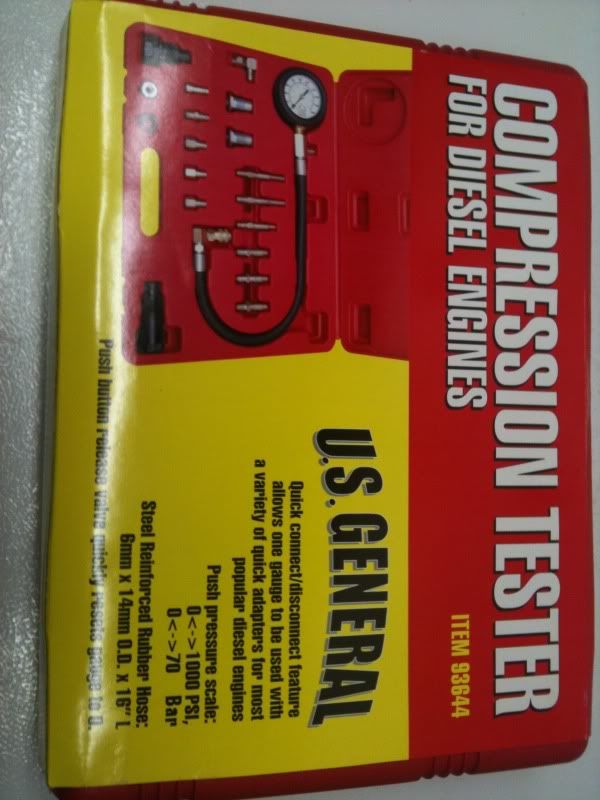 The kit: 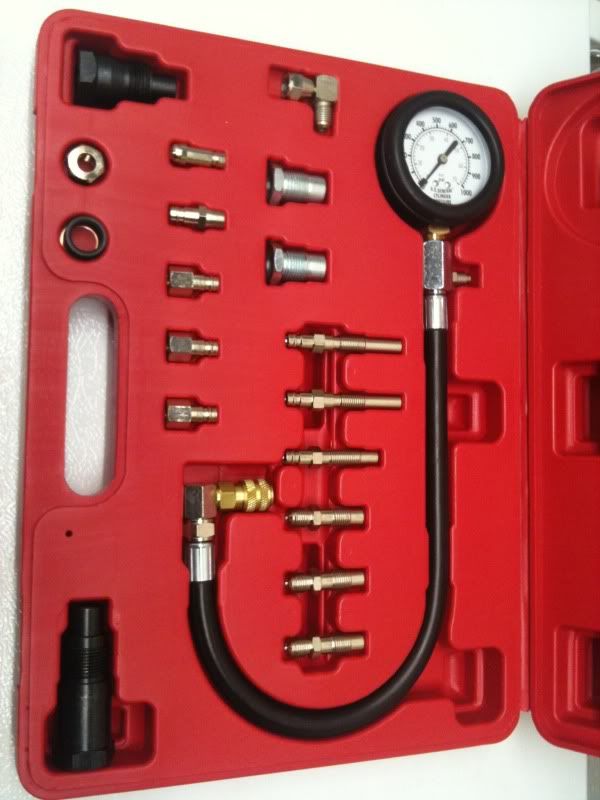 The numbered image of the kit: 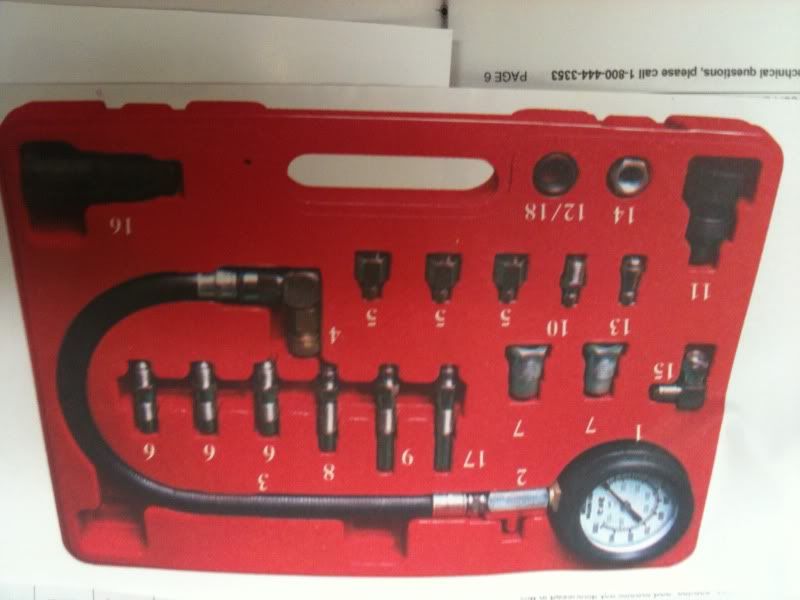 The key: 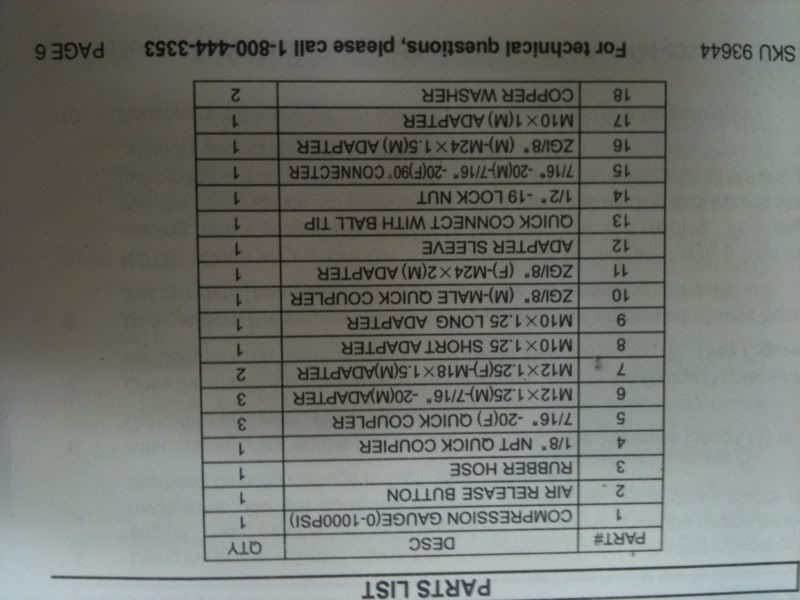 The two closest 1.25 thread (does it matter 10 vs 12x 1.25?), next to a new beru plug: 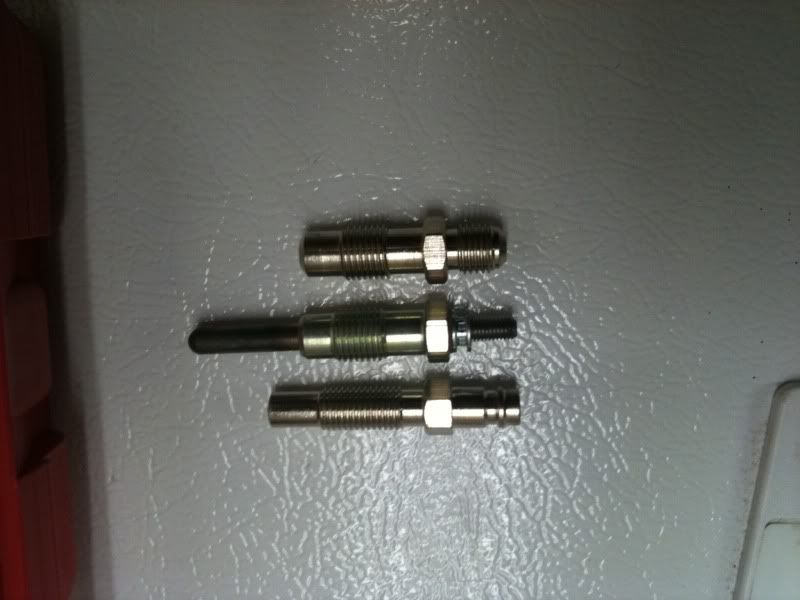
__________________
Current Diesels: 1981 240D (73K) 1982 300CD (169k) 1985 190D (169k) 1991 350SD (113k) 1991 350SD (206k) 1991 300D (228k) 1993 300SD (291k) 1993 300D 2.5T (338k) 1996 Dodge Ram CTD (442k) 1996 Dodge Ram CTD (265k) Past Diesels: 1983 300D (228K) 1985 300D (233K) Last edited by whunter; 11-26-2010 at 03:33 PM. Reason: attached pictures |
|
#33
|
||||
|
||||
|
If you're doing the compression check using the injector holes I recommend disconnecting the glow plug wiring at the fuse; this will cut down on the current draw from your battery.
Kurt
__________________
- '79 240D - engine swap complete! Engine broken in! 28-31 mpg! Lovin' the ride! - '86 190D (W201-126) - 2.5 NA engine, 5 speed, cloth interior, manual climate controls, 33-34 mpg (sold to forum member). |
|
#34
|
||||
|
||||
|
I'm planning to do mine through the GP holes...
__________________
Current Diesels: 1981 240D (73K) 1982 300CD (169k) 1985 190D (169k) 1991 350SD (113k) 1991 350SD (206k) 1991 300D (228k) 1993 300SD (291k) 1993 300D 2.5T (338k) 1996 Dodge Ram CTD (442k) 1996 Dodge Ram CTD (265k) Past Diesels: 1983 300D (228K) 1985 300D (233K) |
|
#35
|
|||
|
|||
|
We can go on and on over the value of a compression test and if all the pressure tests are necessary and valid. Personally I agree with the validity but not necessarily the need.
What I feel is most important is what the compression test is really best able to tell you. Simply put it is this... a comparison of one cylinder to another. Giving this as a measure it is important to measure each one the same. Weather that be buy time or number of times the piston rotates keep it the same and you will have a good idea of overall comparison. If overall it is good you are fine, if one or two are low you probably have a problem. For all but the most anlytical that should give all the info you need.
__________________
Darrell 1984 300SD "Ole Girl" 207K |
|
#36
|
||||
|
||||
|
everyone here should do a compression test on their om617 using the same harbor freight tester and using the same method and post up their results. curious to know how my engine compares. i'd be willing to loan my hf compression tester out, too
__________________
i know Jim Smith. i don't actually know him, but I know of him
http://imageshack.com/a/img923/6201/RQ1H6A.jpg |
|
#37
|
||||
|
||||
|
Well mine is the hf tester shown above (93644), and I got the following cold:
Cyl 1 380 Cyl 2 385 Cyl 3 375 Cyl 4 355 Cyl 5 375 Number 4 I did have to do twice as I couldn't get a good seal of the parts the first time... The second time pressure held, but I'm not 100% sure it was perfect. So now for the discussion, what does cold tell me versus doing it hot (those numbers are cold), and what am I going to miss out on if I do not do it hot (it would be a pain to remove the injector lines and all for a while... These were done through the GP holes, btw.
__________________
Current Diesels: 1981 240D (73K) 1982 300CD (169k) 1985 190D (169k) 1991 350SD (113k) 1991 350SD (206k) 1991 300D (228k) 1993 300SD (291k) 1993 300D 2.5T (338k) 1996 Dodge Ram CTD (442k) 1996 Dodge Ram CTD (265k) Past Diesels: 1983 300D (228K) 1985 300D (233K) |
 |
| Bookmarks |
|
|